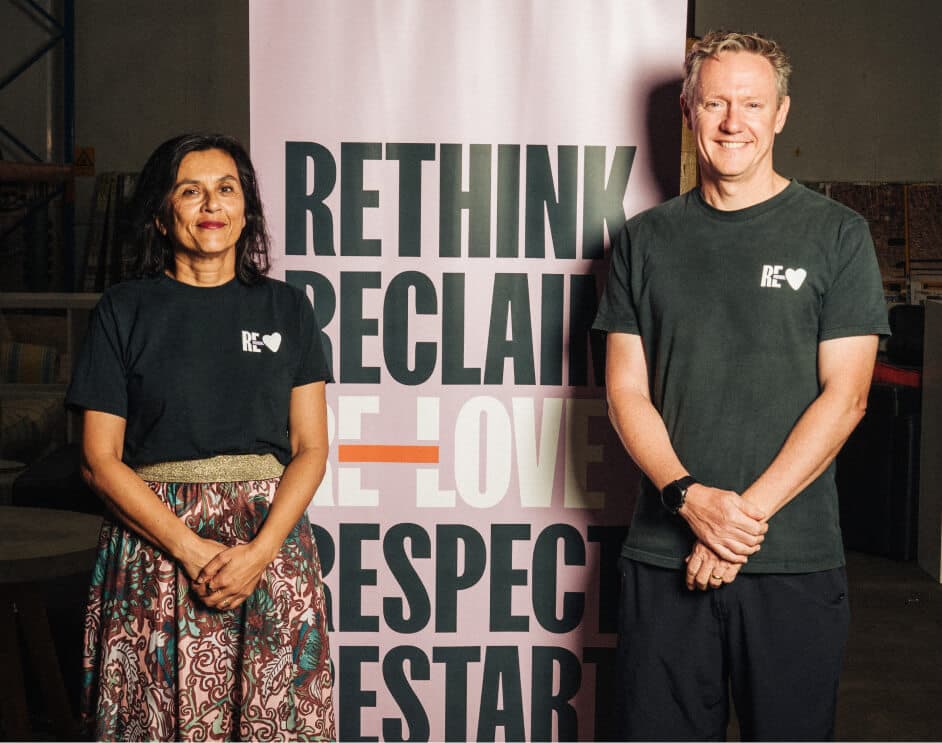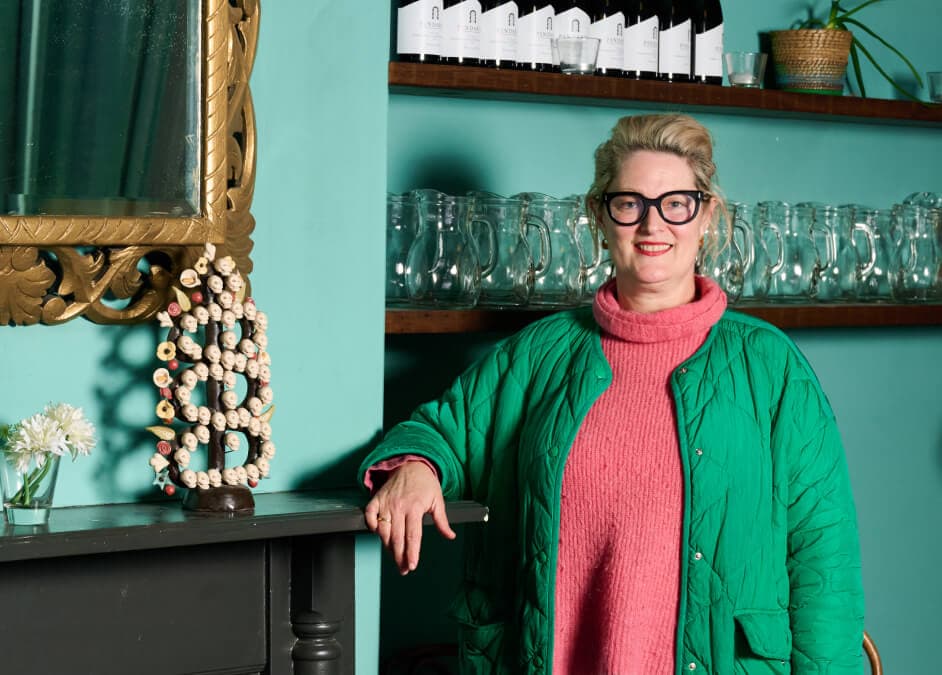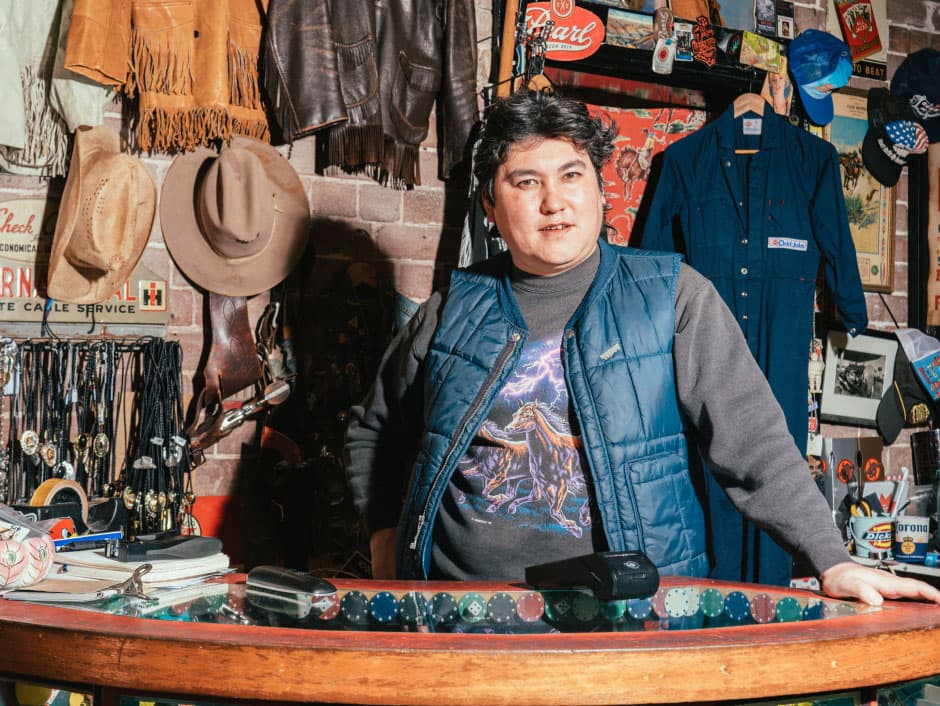
- Case Studies
On Furnishings & Funding: How to Make a House a Home with Sydney Charity ReLove
When an architect and a banker met while volunteering at a charity raising money for cancer, it set in motion a friendship and a project that has helped rehome over 1,800 families in need. We sat down with Renuka Fernando and Ben Stammer of Sydney-based not-for-profit, ReLove, to talk about addressing a social problem with an environmental solution, and how Zeller is facilitating new revenue streams for the organisation.
For the past six years, power duo ‘Ren and Ben’ have been active participants in the not-for-profit sector in Sydney. Having met running and volunteering at CanToo, they quickly realised their heads were in the same place. After accompanying a fundraising group to the New York Marathon, they went on to set up a social running group that offered participants practical ways of giving back to the community. The Run for Good Project kicked off at the end of 2019, connecting runners with local grassroots organisations that help people in need and address important social issues including homelessness, asylum seekers, domestic violence, mental health, and First Nations causes.
Home truths.
When COVID lockdowns scuppered their social running plans, Ben and Ren held steadfast, finding new projects and initiatives to mobilise their community. While the stay-at-home orders were a good impetus for some to spring clean their homes and replace outdated furniture, for others less fortunate, it exacerbated a housing and domestic violence crisis. “We just connected the dots,” explains Ren. “We had gone out to visit one of the women's refuges in Sydney, and realised that, while people could still access social or transitional housing, they lacked the resources to set up a home,” she says. The duo began collecting donated furniture and homewares from friends and family with the goal of helping set up five women. Three years later, their initiative has evolved into ReLove, a registered charity and critical support service in Sydney that has helped rehouse over 1,800 families. “We thought it was a COVID problem, but it turns out it's actually a really critical problem that continues today,” says Ren.






Recycle, reuse, ReLove.
Since it began, ReLove has saved over 2,250 tonnes of furniture and homewares from going into landfill. “We've created an environmental solution to a social problem,” explains Ren. ReLove collects commercial grade furniture and homewares at scale from corporate relocations, companies with excess stock or return stock, hotels, film sets, property stylists, and individuals. Thanks to an army of volunteers, donations are sorted, stored, and distributed in the charity’s warehouse in Sydney’s South East, also known as the ReLove Free Store. It’s here that people who have been referred to the organisation by caseworkers can walk around and pick out everything they need to set up a home, for free. “We want to give people this really joyous experience… and allow them the opportunity to picture a new life the way they want it,” explains Ren, who says that 75-80% of the people they support are women who have experienced homelessness or domestic violence.
Keeping the lights on.
While ReLove is well on track to reach its goal of supporting 1000 families this year, the founders’ dream to scale the organisation nationally, starting with Melbourne and Brisbane, is at the mercy of funding. “It costs us half a million dollars a year just to pay the rent,” explains Ren, "but we can’t do what we do without a warehouse.” With the exception of six professional removalists and one operations manager, ReLove is entirely volunteer run, but it can’t stay that way long term. “We can't maintain and scale and make this national until we get funding to pay some staff,” says Ren. Philanthropy, grant rounds, and corporate sponsorship account for the majority of the organisation’s current funding, but Ben and Ren are actively building out alternative revenue streams that can generate income and help keep the lights on. In the past year, ReLove has begun running fundraising events and corporate volunteering programs, selling merchandise, and launching its Shop for Good – a store offering a selection of donated furniture pieces, which can be purchased by the public online or from the warehouse.
Tap to pay it forward.
Keeping costs down while also streamlining and maximising opportunities to take payments was what led Ben and Ren to Zeller. “We watch every single dollar,” says Ren, “and Zeller’s fees were way lower than what we were paying with the bank.” When they launched their first event in November last year – attended by 220 people – they needed a solution to accept payments for raffle tickets, merchandise, donations, and silent auction purchases, without footing the bill for dozens of EFTPOS machines. “We had our 20 volunteers using their phones to accept payments with Tap to Pay,” explains Ben, “the ability to scale it up really quickly was fantastic.” Rather than paying for a single EFTPOS machine, the group simply had to download the Zeller App on each of the volunteers’ phones and enable the function. “That flexibility has been brilliant,” says Ren, “We also use Zeller to take payments at the Shop for Good and because we have so many volunteers, it needs to be simple. Zeller is so user friendly. I love it.”

Lower fees and flexibility.
Ben, who has spent over thirty years in investment banking, including a 17-year stint at Deutsche Bank, is no stranger to the financial sector. It didn’t take him long to recognise the shortcomings of the big four banks in providing not-for-profit organisations with the support they require. “The monthly fees, the ongoing transaction fees, and just the lack of flexibility were the reasons we switched to Zeller,” he says. “At the bank, for something as simple as switching on or off surcharging, you have to make a phone call, you can’t do it on the app… or when we needed to roll over an existing term deposit into a new one, we had to provide board approval. It’s just too much,” he explains. ReLove settles funds into Zeller Transaction Account and sweeps any excess funds into a high-interest-bearing Zeller Savings Account. “Setting up our Zeller Account was very very easy and straightforward,” says Ben, “Plus our team also uses Zeller Debit Cards as fuel cards, and they work really well for us.”
The missing link.
Working with limited financial and human resources, charities and non-profit organisations have a pressing requirement to identify and mitigate inefficiencies or profit leaks. As Ben and Ren have uncovered in their work, one missing part is enough to undermine a whole. “There’s a lot of funding that goes into crisis programmes around mentorship and trauma recovery… but none of it works when you're sleeping on the floor,” says Ren. Finding the missing links – in society, as in business – is the key to success, and so far, the founders of ReLove have demonstrated a remarkable aptitude for doing just that.




